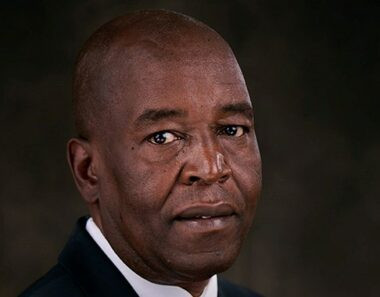
CONFEDERATION of Zimbabwe Industries (CZI) president Kurai Matsheza has urged the government to work with the private sector in policy-making to help revitalise industry.
Speaking at the CZI 2023 annual conference held in Harare recently, Matsheza stated that transformative industry policymaking is necessary to address challenges facing the sector.
The manufacturing sector is the only one that is lagging compared to other sectors, with Treasury projecting that the sector will rebound by 3,7% in 2024.
“Allow the private sector to provide the lead in defining what would make for a truly transformative industrial policy,” Matsheza said.
“We are out of time and the task is huge considering the myriad of challenges that we need to address. We need very strong collaboration between the government and the private sector; there is also need for collaboration across different ministries that are critical to industrialisation.
“The ministries in the value chains and in the economic enablers as well as the fiscal and monetary authorities need to collaborate to ensure that there are deliberate policies to accelerate industrialisation and stop the de-industrialisation trend that we are beginning to see.”
Matsheza said input from the private sector into policy-making was critical because it would help businesses to deliver economic growth to achieve an upper-middle-income by 2030.
“The National Development Strategy 1 (NDS 1) speaks to an upper-middle-income economy and society that is powered by a structurally transformed economy that is private sector led.
- Parly caucus on PWDs mooted
- Taruberekera to address global business summit
- Taruberekera to address global business summit
- Manufacturers get US$300m lifeline
Keep Reading
“I would like to underline the private sector led here — it acknowledges that business activity is going to deliver the economic growth that will deliver an upper-middle-income economy. Our input into policy is what we believe will deliver transformation and is, therefore, critical.
“Our request is to be given an opportunity to submit to the Industry ministry proposals for the next industrial policy which is supposed to deliver an upper-middle-income industry and economy,” he said.
Matsheza believes that if the economy achieves Vision 2030, the country will catch up with the frontier economies.
“I will highlight here some of the key milestones that we need to achieve if we are to achieve the upper-middle-income status. We need to achieve industry and economic excellence by becoming the most efficient and most competitive place of production. The best place to do business is first in the region and then on the continent.
“We also need to catch up with frontier economies to achieve specialisation in lucrative and labour or skills-intensive production. We have the industrial base, the resources, and the human capital base to build on to achieve this,” he explained.
He added: “We are calling for a truly transformative industrial policy for this last leg of the journey towards vision 2030. We, therefore, need to come up with policies and plans to achieve the above and then work on collaborations that we need to deliver and resources needed to work on securing those.
“We cannot afford to reduce the aspiration to the level of any current limitations we have or take an incremental approach to what we have always been doing. A real departure from the usual is needed.”







